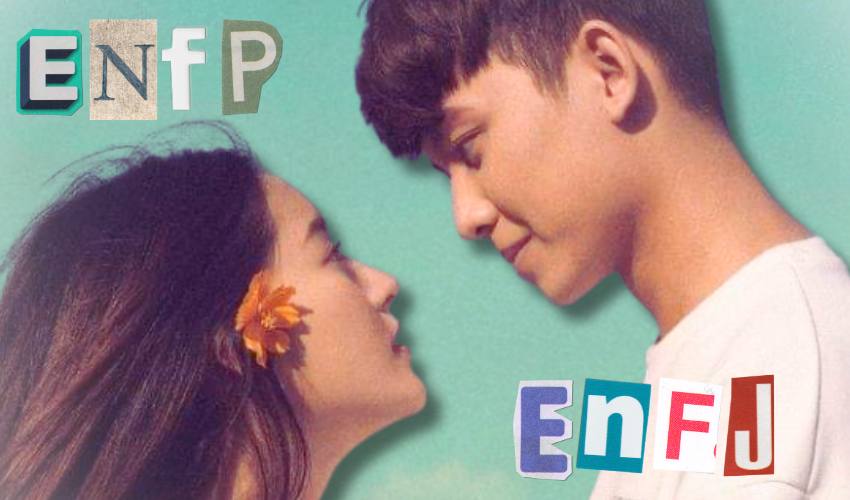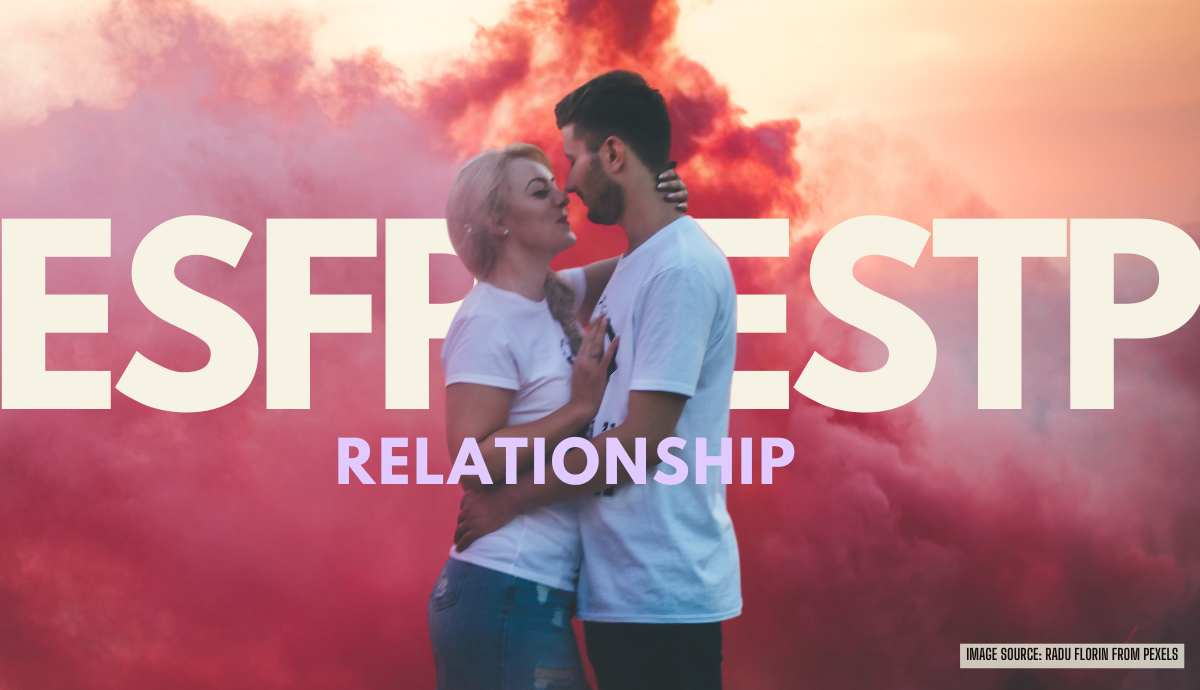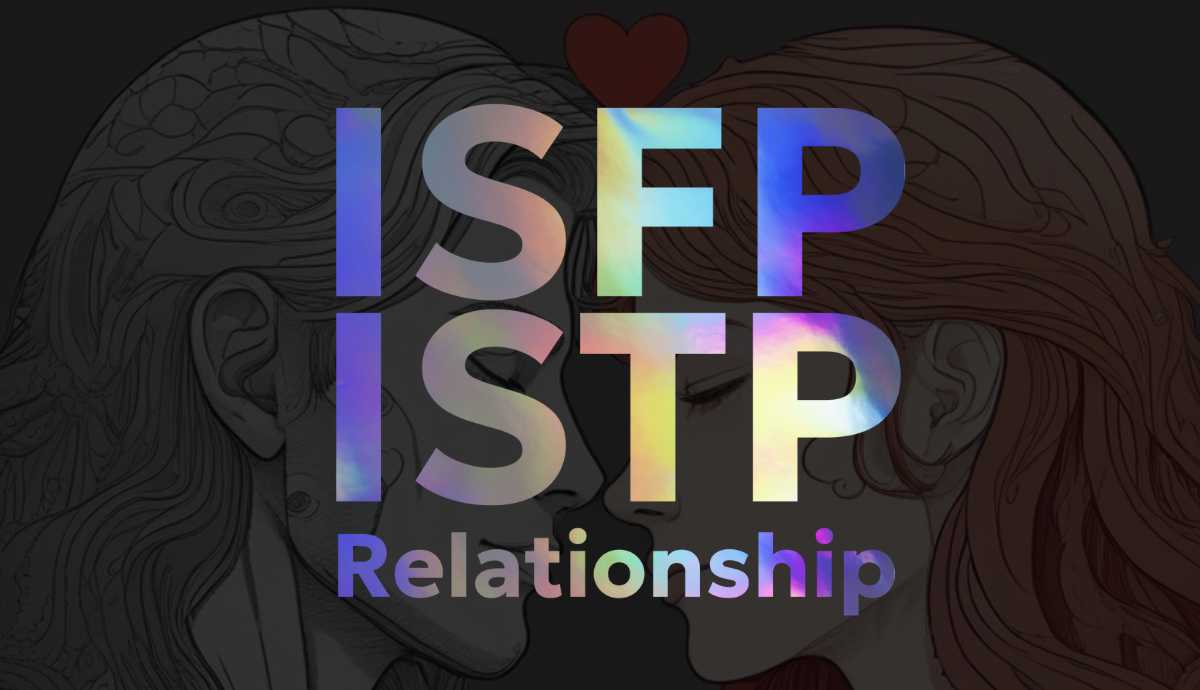In the world of dating, the MBTI can be helpful when trying to understand how people relate and why they either get along or don’t get along with one another. When it comes to romantic compatibility, the dynamics between an ENFP and an ENFJ can be exciting and complex.
Both ENFP and ENFJ are extraverted, intuitive and feeling-based and are thus mutually outgoing and sociable. These commonalities can form the basis of a vibrant romance full of social events and activities. They enjoy meeting new people and exploring new possibilities together, which help keep the relationship fun and fresh.
These two personality types, identified by the Myers-Briggs Type Indicator (MBTI), share many similar traits but also have unique differences that can complement each other beautifully. Let’s delve into five key aspects that make this relationship work.
| ENFP | ENFJ | |
|---|---|---|
| dominant | Extraverted Intuition (Ne) | Extraverted Feeling (Fe) |
| auxiliary | Introverted Feeling (Fi) | Introverted Intuition (Ni) |
| tertiary | Extraverted Thinking (Te) | Extraverted Sensing (Se) |
| inferior | Introverted Sensing (Si) | Introverted Thinking (Ti) |
1. ENFP and ENFJ Speak a Similar Love Language
The ENFP and ENFJ both share the NF preference which classifies them as part of the idealist temperament group. This shared trait allows both personalities to relate and connect on a deeper level. They are able to communicate their feelings and thoughts in a way that the other can easily understand, leading to a strong emotional connection.
According to David Keirsey, author of the book, “Please Understand Me”, intuitive types tend to understand and get along better with other intuitive types. Keirsey believed that having the same perceiving preference alone, whether intuition (N) or sensing (S), is the key to good communication and overall compatibility.
Both of these personality types value deep emotional connection and are expressive in their feelings. They easily understand each other’s emotional needs and respond to them effectively. This fortifies their bond and helps in maintaining harmony in their relationship.
Moreover, in a survey published on thoughtcatalog.com, ENFJ and ENFP participants reported similar love language preferences. “Quality time” and “words of affirmation” were the top two preferred love languages. Interestingly, “words of affirmation” were slightly more popular among ENFPs. This shared preference for intuition along with similar love language preferences indicates high compatibility and great prospects for a successful relationship.
2. ENFP and ENFJ are Sensitive to Each Other’s Moods and Feelings
As with other idealists, ENFP and ENFJ are highly empathetic. They are intuitively tuned into their partner’s feelings and are quick to understand and respond to changes in mood. This mutual sensitivity ensures that neither partner will suffer for lack of consideration or emotional support. These two types share a mutual regard for each other’s perspectives and sentiments.
As part of their natural rapport, they make an effort to listen, empathize and understand one another rather than dismiss or put focus on logic, facts and technical solutions. They offer each other the type of support most preferred by “feelers”, which is support through understanding and acknowledgement. Empathy is the ability to comprehend the POV of others and feel what they feel, and this is a quality that is prominent in both ENFP and ENFJ personalities. Furthermore, this reciprocal sensitivity and empathy serves to create a supportive and nurturing environment for the relationship that encourages growth and confidence to be open and honest with one another.
3. ENFJ Makes ENFP Feel Included in Their Decision Process
ENFJ personalities often take the lead or initiative in scheduling tasks or addressing problems. They however, do so with diplomacy and will readily consult their partner for feedback and input. As a judging type, they are wired to plan, take constructive action and seek resolution, but on account of their dominant Extraverted Feeling, they also like to involve others in their decision-making process. ENFJs value and appreciate the wants and needs of others and this is especially true in their friendships and romantic relationships.
Although they have a penchant for taking control, they do so in a collaborative and conscientious way. This inclusion can make the ENFP feel valued, and respected, which might also make up for any annoying aspects of ENFJ’s take-charge tendencies. This leadership and diplomacy ensure that both partners have a say in the decisions that affect their relationship, leading to a harmonious and balanced dynamic.
4. ENFP and ENFJ Share a Love of People
Both ENFP and ENFJ personality types are extroverted and enjoy socializing. They love meeting new people, participating in social events, and are often the life of a party. This shared love of people and social activity provides a source of common ground they can enjoy together. Both types will likely maintain an active social life outside of their relationship which keeps them from becoming too codependent or overly attached to one another. Their relationship will often be enriched by the experience and value they gain from their extended social circles.
ENFP and ENFJ’s social prowess is underscored by a mutual interest in authentic human interactions and human concerns. They are both invested in the cultivation of good relationships both in and outside the one they share together. They are also united in their affinity for romance, fantasy, and intimate exploration. This mutual interest ensures that their relationship is filled with deep conversations, shared dreams, and a strong emotional connection.
5. ENFP and ENFJ can Learn and Benefit From Each Other’s Judging/Perceiving Dichotomy
The judging /perceiving dynamic of this pairing can be beneficial but also a source of contention. When judging types such as the ENFJ come together with perceivers such as the ENFP, the disparity in their style of approach can become an obstacle and an object of annoyance. While ENFJs are more organized and like to have a plan, ENFP types are more spontaneous and prefer to keep their options open. This dichotomy can actually work in their favor. The ENFJ can help the ENFP become more organized and goal-oriented, and the ENFP can help the ENFJ to be more spontaneous and adaptable.
This mutual learning and benefiting from each other’s differences can result in personal growth for both, making their relationship more enriching and fulfilling. ENFJ personalities can help improve ENFP’s organizational blind spots. ENFP, by contrast, can teach ENFJ to loosen up and also be less focused on what others want or think. These complementary strengths can help each partner grow and learn from each other, leading to a more balanced and fulfilling relationship.
ENFP and ENFJ Relationship Pros and Cons:
Pros:
- Shared Values: Both ENFPs and ENFJs are idealistic and value-driven individuals, which can create a strong foundation for their relationship.
- Empathy and Understanding: Both types are empathetic and understanding, making it easier for them to connect emotionally and support each other.
- Inspiration: ENFPs can inspire ENFJs with their creativity and enthusiasm, while ENFJs can motivate ENFPs to pursue their goals and aspirations.
- Communication: Both types are skilled communicators, which can lead to open and honest conversations, resolving conflicts effectively.
- Complementary Strengths: ENFPs bring spontaneity and creativity, while ENFJs bring organization and planning skills, balancing each other out.
- Mutual Growth: They can encourage each other to step out of their comfort zones and grow personally and professionally.
- Social Harmony: ENFP and ENFJ both value harmony in their relationships and are willing to work towards maintaining it, leading to a supportive and harmonious partnership.
Cons:
- Over-idealization: Both types may have high expectations of each other, leading to disappointment when reality doesn’t match their idealized visions.
- Conflict Avoidance: While they value harmony, they may avoid addressing underlying issues to maintain peace, leading to unresolved tensions.
- Emotional Sensitivity: Both ENFP and ENFJ are sensitive to criticism, which can sometimes lead to misunderstandings or hurt feelings.
- Different Priorities: ENFPs may prioritize individual freedom and exploration, while ENFJs may prioritize stability and structure, causing friction at times.
- Attention to Detail: ENFPs may overlook details in their excitement, while ENFJs may become frustrated by this lack of attention to practical matters.
- Decision-making: Both types may struggle with decision-making, as ENFPs can be indecisive, while ENFJs may feel overwhelmed by the need to consider everyone’s feelings.
- Energy Levels: ENFPs may crave novelty and excitement, while ENFJs may prefer routine and stability, leading to differences in energy levels and activity preferences.
Overall, while ENFPs and ENFJs can have a deeply fulfilling relationship built on mutual understanding and support, they may also face challenges related to their differing priorities and approaches to decision-making and conflict resolution. Communication, compromise, and mutual respect are key to overcoming these challenges and building a strong and lasting connection.
Want to know your astrology placements? You can generate your astrology chart here with our free birth chart generator tool.

Related posts:
- INFP vs ENFP Comparison: 5 Qualities in Which INFP and ENFP Differ
- ENFP Personality Type: the Campaigner
- ENFP Shadow: The Dark Side of ENFP
- ENFP Weaknesses: 7 Struggles of Being ENFP
- 35 ENFP Traits That Confirm You Are One
- Astrology Profiles of 22 Famous ENFJ People
- ENFJ Weaknesses; 7 Struggles of Being ENFJ
- 12 SHADES OF ENFJ | MBTI & THE ZODIAC
- American Presidents Ranked By Zodiac Sign - January 20, 2025
- ESTP and ESFP in love: 6 Dynamics of Their Relationship - September 4, 2024
- ISFP and ISTP in love: 5 Dynamics of their Relationship. - August 28, 2024





